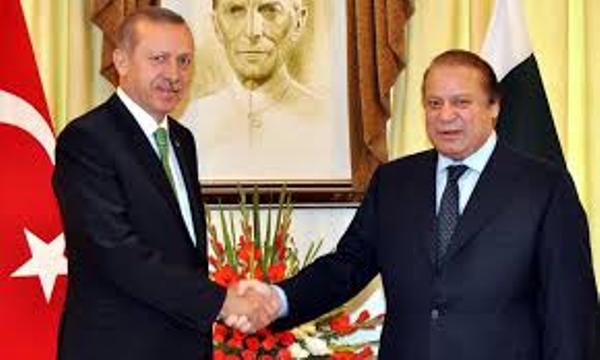Islamabad: Islamabad : ‘Erdo-Gone?’, this was the headline splashed across the Pakistan’s national newspaper ‘Daily Times’ in it’s July 16th issue as news of an attempted coup in Turkey started making it’s way across news organisations around the world.
This particular headline, however, did not go down well with the Turkish government, and on July 20th, Pakistan’s Ambassador to Turkey was summoned to the Turkish Ministry of Foreign Affairs to give an explanation.
Turkey called on Pakistan to put pressure on the ‘Daily Times’ newspaper to withdraw the news report from its online edition and issue an unconditional apology. There were more demands from Turkey.
PAKTURK International Schools and Colleges is a network that is run by U.S.-based Turkish cleric Fethullah Gulen, who Turkey blames for the coup attempt. According to a Voice of America report, Turkish Ambassador to Pakistan Sadik Babur Girgin demanded the immediate closure of these schools in Pakistan.
On both of these requests made by Turkey, there has been no progress from the Pakistani side, despite the close ties between Pakistan Prime Minister Nawaz Sharif and Turkish President Recep Tayyip Erdogan. Pakistan Tehreek-e-Insaf(PTI) chief Imran Khan, considered close to the Pakistan Army, argued that the future of thousands of Pakistani children should not be jeopardized as a result of the failed Turkish coup.
To add insult to injury, the ‘Daily Times’ ran a two-part series of articles in it’s online edition that accused Erdogan of becoming increasingly authoritarian in the last few years and initiating purges in his government against those who held differing views. The article went on to highlight how during Erdogan’s Presidency, crimes against women was on the rise, Islamic bigots had infiltrated the Turkish bureaucracy and institutions and how Turkey was staring at a bleak future.
Pakistan’s non-compliance of these issues points to a rift in the oft lauded Turkish-Pakistan “brotherly relationship”, with many experts pointing fingers at the Pakistani army for usurping the country’s foreign policy that led to this situation. Pakistani Army Chief General Raheel Sharif’s anti-Erdogan views are driven by many factors, especially the close ties between Prime Minister Nawaz Sharif and President Erdogan.
The Pakistan army chief is also guided by the deep Chinese mistrust of Erdogan which stems from allegations made by China in the past against Turkish government for issuing passports to fundamentalist Chinese Uyghurs from Xinjiang, including members of the East Turkestan Islamic Movement, which allowed them to move to Turkey with ease. The Chinese government has stated that Turkish embassies in Malaysia, Thailand and China are involved in such activities. (ANI)

